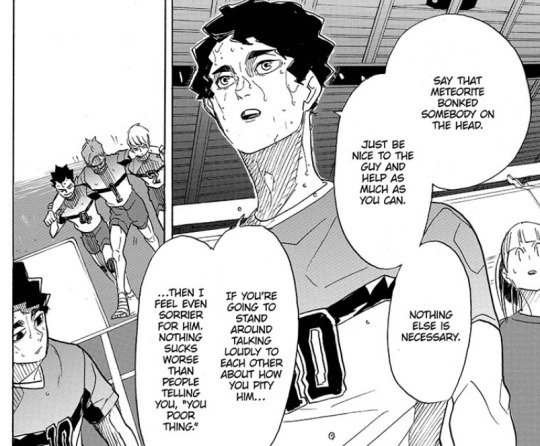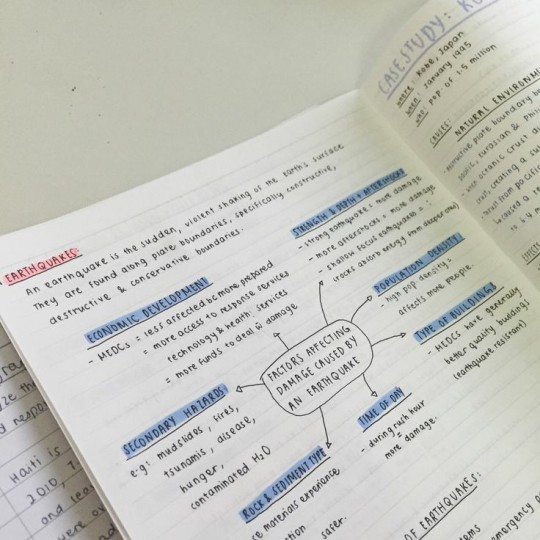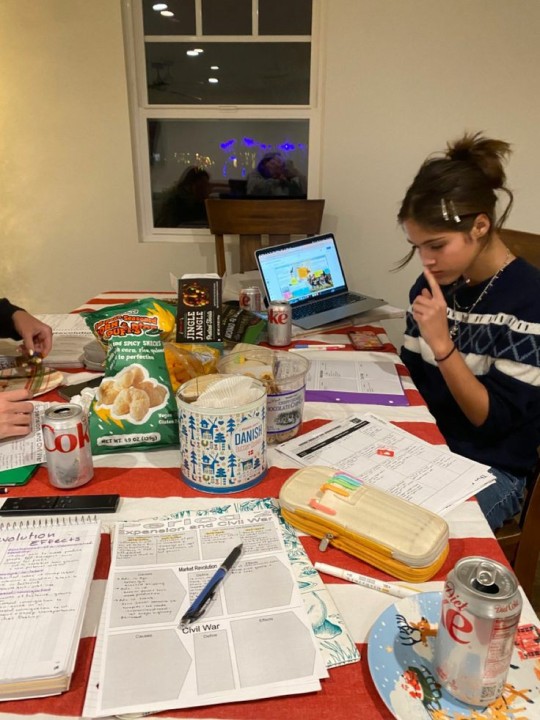Text
Toca boca games were made for nureodivergents
That's it
201 notes
·
View notes
Text
Does society really acknowledge and accept mental health?
In recent years, mental health awareness has become a more prominent part of our education systems and public discussions. Schools and universities have introduced mental health resources, workshops, and even specific programs designed to help students understand and cope with issues like anxiety, depression, and stress. However, a pressing question remains: does society truly acknowledge and accept mental health struggles, or is this awareness merely superficial?
We often speak about the importance of supporting those with mental health issues. Messages encouraging people to "reach out" and "be there" for friends facing mental health challenges are prevalent. We are told it’s crucial to lend a helping hand to people struggling with anxiety, depression, bipolar disorder, and other mental health conditions. But when these struggles start to impact a person’s day-to-day life—when it affects their studies, work performance, or social responsibilities—do people around them genuinely offer understanding, or do they begin to judge?
For instance, consider a student who is visibly struggling to keep up with coursework. They might miss classes due to bouts of anxiety or have a decline in grades due to depression. While on the surface, people may agree that mental health is important, there is often an underlying stigma that emerges. Instead of empathy, they might face subtle judgment: Why are they not putting in the effort? Why are their grades slipping? Why are they absent so often?
This disconnect raises important questions about the true level of acceptance society has for mental health issues. It’s easy to support mental health as a concept, but when it leads to tangible consequences—missed deadlines, poor academic performance, absenteeism—support sometimes fades into judgment or even frustration. The reality is that mental health issues can manifest in ways that affect one’s productivity and reliability, which are often still valued more highly than mental wellness in competitive environments like schools and workplaces.
It’s also worth considering how society views recovery. Many people believe that, with the right treatment, someone struggling with mental health should be able to quickly return to their previous level of function. But the journey to mental health stability is often long, non-linear, and requires patience from everyone involved. It’s not as simple as taking medication or attending therapy; recovery can mean periods of struggle and relapse. Unfortunately, society’s limited tolerance for inconsistency or temporary setbacks can make it difficult for individuals to navigate their mental health challenges without feeling like a burden.
Ultimately, if we truly want to support mental health, we need to move beyond surface-level awareness. Accepting mental health issues means acknowledging the impact they can have on a person’s academic or professional performance without judging them for it. It requires empathy, patience, and a willingness to support individuals even when their struggles manifest in visible and inconvenient ways.
Mental health is not a simple checkbox on an awareness agenda. For true progress, society must learn to accept the realities of mental health in all aspects, including the challenges and setbacks that come with it.
0 notes
Text

kofi request: Tsuyu, Bakugo, and Ochako hanging out. I made them work on a group project together, i think they'd make a very fun and competent team lmao
6K notes
·
View notes
Text

i just think it’s so funny that sakusa literally monologues to no one in particular. nobody asked and yet here he is talking away about some hypothetical situation where somebody gets “bonked” in the head with a meteor. like bro what are you talking about 💀
he’s a yapper fr.
OK BUT ALSO CONSIDER

imagine little elementary school kiyoomi who spent a lot of time alone without a lot of friends and family who weren’t really home often. but i can totally see him finding enjoyment in just talking to himself especially at home.
if he’s cleaning he would just talk about what he’s doing as if he’s giving advice to someone on how to clean efficiently even though there’s nobody there to listen. or if he’s doing homework he’ll say the steps of a math question out loud as if he’s teaching someone.
even when he’s not doing something he would just have a complete conversation with himself. but at school because he’s in public he just thinks to himself because it would just be weird and awkward if he just started talking out of nowhere to no one.
but through komori and volleyball, he started to gain more friends through being teammates or rivals so he’s become more talkative outside of his home. he always has something to say. if he’s not saying it he would be thinking it. he always has a witty remark of about something or a comment. if he has an opinion you won’t just be receiving a short speech about it.
so when msby does a team interview and the interviewer asks “who’s the most talkative member?”, both the interviewer and everyone who sees the interview are surprised at how the entire team unanimously agrees it’s sakusa.
he’s not the loudest, but he’s definitely the most talkative.
hinata: i always hear omi-san talking to himself in the locker room since mine is right next to his
miya: he spent two hours WITHOUT BREAK telling me about how he thinks birds would be the top predator after humans
bokuto: i don’t know what he’s saying 99% of the time but because it’s omi i try to listen. that’s why i always leave practice late
meian: he has really weird hypothetical situations or analogies to explain his feelings and he ends up saying a lot more than what’s necessary
now when he visits his family, because they didn’t spend too much time at home themselves due to being busy, they also thought sakusa was pretty quiet and reserved. until they started staying home more often and sakusa warmed up to them. now they think he talks too much but they can’t say anything because he’s the baby of the family and it makes it so much easier for them to know what’s going on in sakusa’s life when he voluntarily gives up this information immediately without being asked.
417 notes
·
View notes
Text
Neurotypical Person: "Just talk to people. Stop being afraid of rejection. The only way you'll fail is if you don't even try. Have some confidence."
Autistic Person: (asks whatever questions they can think of from a prepared list and the conversation ends up being awkward and forced)
Autistic Person: (infodumps about their special interest and gets labeled as annoying)
Autistic Person: (comments on something they observe and gets labeled as judgmental)
Autistic Person: (approaches random people in random places, not realizing that there are some places where people don't expect to be approached, and gets threatened)
Autistic Person: (talks to someone, misses a subtle cue that they want to be left alone, and gets labeled as disrespectful of boundaries)
Autistic Person: (tries to join someone's conversation and gets labeled as an eavesdropper)
Autistic Person: (teases someone as a joke because they've seen that that's how a lot of people interact with each other, not realizing that they don't have enough of a connection with this person to do that, and gets labeled as mean)
Autistic Person: (tries to talk to someone who's already talking to someone else and gets labeled as rude for interrupting, and waiting until they're alone to avoid interrupting isn't an option because that rarely ever happens)
Autistic Person: (approaches someone or faces in their general direction while trying to think of what to say to them, and gets labeled as a creep for hovering or staring)
Autistic Person: (talks to someone too often and gets labeled as clingy)
Autistic Person: (talks to someone, by some miracle it works and this person actually enjoys the conversation, but now they have to do it again and again and again, and they eventually run out of things to talk about or do something wrong)
Autistic Person: "I don't get it. I talked to people. I did exactly what I was told to do. And I didn't say anything sexual, anything gross, anything about death, or anything else that would be considered 'obvious'. But it didn't work. It can't be because I did something wrong, because I followed the advice exactly and so many people insisted that that's all I have to do. There must be something wrong with me. Maybe I'm just unattractive."
8K notes
·
View notes
Text
“I need him biblically,,, I need him in a way that is concerning to feminism.”








Currently rewatching asylum for the first time since it aired. Evan really put his whole evussy into this role stg 🙏🏻
5K notes
·
View notes
Text
Learning styles and personalized studying!
Understanding your learning style is a powerful tool for tailoring your study methods to suit your preferences and enhance your overall learning experience. There are several recognized learning styles, and individuals often have a combination of these. Here are common learning styles and personalized studying strategies for each:



1. Visual Learners:
Use mind maps, diagrams, and charts to organize information.
Utilize color-coded notes to highlight key concepts.
Watch educational videos or animations to reinforce understanding.
Create flashcards with visuals to aid recall.
2. Auditory Learners:
Record lectures or study materials and listen to them.
Engage in group discussions or study with a study buddy.
Use mnemonic devices or rhymes to remember information.
Explain concepts out loud to reinforce understanding.
3. Kinesthetic/Tactile Learners:
Incorporate hands-on activities, such as experiments or simulations.
Take breaks during study sessions for physical movement.
Use tactile tools like stress balls or textured objects while studying.
Write and rewrite key information to reinforce learning through touch.
4. Reading/Writing Learners:
Create detailed written notes or outlines of information.
Summarize concepts in your own words.
Develop written mnemonics or acronyms.
Use textbooks, articles, and written resources for in-depth study.
5. Logical/Mathematical Learners:
Organize information in a systematic and logical manner.
Use charts, graphs, and formulas to represent concepts.
Solve problems and practice with exercises to reinforce understanding.
Engage in critical thinking and analytical discussions.
6. Social/Interpersonal Learners:
Participate in study groups or collaborative learning environments.
Discuss concepts with peers to reinforce understanding.
Teach the material to others to enhance retention.
Use social media or online forums for academic discussions.
7. Solitary/Intrapersonal Learners:
Create a quiet, focused study environment.
Set personal goals and deadlines for tasks.
Reflect on and review materials independently.
Use self-assessment tools to monitor progress.
8. Multimodal Learners:
Recognize and embrace a combination of learning styles.
Experiment with various study techniques to identify what works best.
Utilize a mix of visual aids, auditory resources, and hands-on activities.
How to Personalize Study Strategies:
Experiment: Try different study techniques to identify what resonates with you.
Use Technology: Leverage educational apps, online resources, and interactive tools that align with your learning style.
Adapt Material: Modify study materials to suit your preferences, such as adding visuals, creating audio notes, or incorporating interactive elements.
Regular Reflection: Assess the effectiveness of your study methods regularly and make adjustments as needed.
Combine Techniques: Integrate multiple learning styles into your study routine to enhance overall comprehension.
Remember, everyone is unique, and learning styles may evolve over time. By customizing your study approach based on your individual preferences, you can maximize your learning potential and make the studying process more enjoyable and effective. 💗
254 notes
·
View notes
Text
when a deadline is looming but the stress still isn’t enough to motivate you into doing something:

124K notes
·
View notes
Photo










Here’s Rory Gilmore studying to motivate all those lazy asses out there to do the same (mine included).
20K notes
·
View notes
Text
I think people forget a lot of the times that I am completely doing this by myself.
I do not have help on the internet. I am able to use the internet independently, and I have been since I was a little kid. Does that mean I wouldn’t benefit from help on the internet? No, I would greatly benefit from someone helping me write my blog posts and chat online. However, I don’t have that. And it’s a privilege for me.
I am extremely privileged to be able to express myself in a way that makes sense to people and be able to do it independently. Using the internet is sooo hard, and I struggle with it everyday, but it is so worth it. The community I’ve joined, the people I’ve met, the things I’ve done. It’s amazing.
If you’re able to use the internet independently then go you! But it’s a privilege to do so! So many of my higher support needs friends can’t use it fully independent, and I see that. I see them. I hear them.
People don’t understand that the majority of higher support needs people can’t use the internet. There is a small percentage of us who can, and even though we can, we often have lower support needs than the people who can’t.
Using the internet opens your world up to so much and I think people forget that. People forget that the world is opened up for you. That it is a place where you can learn, you can see so much. I’m glad I have access to the internet. But I don’t forget those that can’t. And I hope one day it’s more accessible and caregivers realize the importance more to those who can’t, so one day they maybe can.
333 notes
·
View notes















